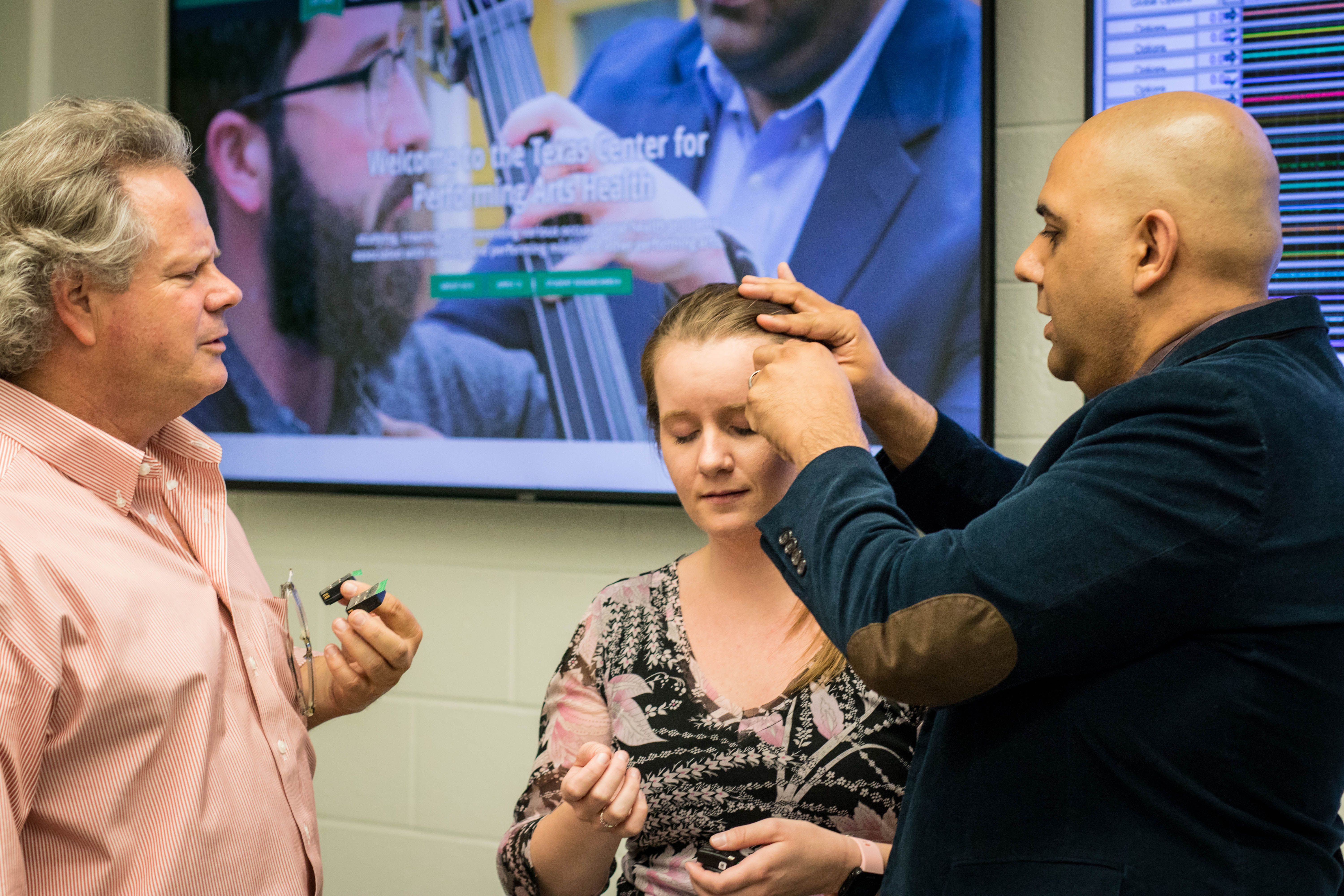A clarinet player in a high school marching band might not think twice about how long hours of practicing damages his body.
But a collaboration of educators working to improve the health of performing artists does. The Texas Center for Performing Arts Health, which includes faculty from the University of North Texas and UNT Health Science Center, is collaborating with Denton ISD to teach fine arts teachers how they can incorporate health and safety practices into their classes.
The two-day project, hosted by Denton ISD, begins Friday and will focus on empowering performing arts teachers to fulfill music and health standards mandated by the Texas Education Agency in 2015, said Sajid Surve, DO, Co-Director of the Texas Center for Performing Arts Health and Associate Professor of Family Medicine at UNTHSC.
“Our hope is that all music educators in the state will adopt these best practices in the classroom, so that the more than 1 million children involved in public school music programs in Texas can stay healthy and informed as they develop their passion and lifelong love of music,” he said.
Historically, the injuries suffered by performing artists have been understudied, said Kris Chesky, PhD, Co-director of the Texas Center for Performing Arts Health and Professor of Music at UNT. But the Center has worked to raise awareness through extensive research on injury prevention.
The risks that athletes face in school and the need for safety measures are well known, but far less attention is given to the health concerns of performing artists, Dr. Chesky said.
But practicing intensely, holding instruments incorrectly and performing in loud environments puts students at an elevated risk for muscular skeletal injuries, hearing loss and other serious health problems, he said.
Clarinet players, for example, are prone to right thumb injuries caused by poor posture and holding the instrument in one hand. Trombone players are at an elevated risk for neck to hand injuries.
Hearing damage is another big concern, said Dr. Chesky, who serves on a World Health Organization task force that seeks to minimize the global epidemic for hearing loss due to excess music exposure among youth.
The goal of the project, which is funded by a grant from the National Institutes of Health, is to help music educators develop competency about health topics, while health educators develop competency about music-specific needs, Dr. Surve said.
Over two professional development days, fine arts educators will learn about musculoskeletal health, hearing health, vocal health, mental health, hygiene, and hydration. They will also develop strategies to make sure health and safety issues are addressed in classrooms.
Empowering teachers with knowledge to develop healthy performing and listening habits in youth lays a foundation that will have lifetime impact regardless of career paths, said Jackie Demontmollin, EdD, Director of Fine Arts at DISD.
Through public school music programs, young artists will have the knowledge to stay healthy and informed as they develop their passion and lifelong love of music, said Stephen Austin, PhD, Professor of Voice in the UNT College of Music.
The project is also designed to facilitate interdisciplinary collaboration across the UNT System and to support the professional development of young scholars.
Meghan Taylor, a second-year PhD student and Roger Hoverson, also a graduate student, are managing the project.
Taylor said she envisions Denton as the global epicenter for innovation and leadership.
Through collaboration at many levels, the goal is to have an impact on the health and safety of students in middle and high school, as well as for the rest of their lives, Dr. Chesky said.
“The hope is this approach will be used in classrooms across the state and Texas creates a model for the country,” he said.





